My tryst with liberation theology, Marxists, and Argentines
By Philip Mudartha, Doha
Bellevision Media Network
18 Mar 2013: Pope Francis gives me an excuse to write about Latin America in general and Argentina in particular.
My fascination of Latin America goes back to two years of living with Jesuits in Mangalore during my pre-university education. I got access to a lot of periodicals, books and pamphlets that otherwise I would not have had. That is a debt to Jesuits I owe and some more. But that is another story.
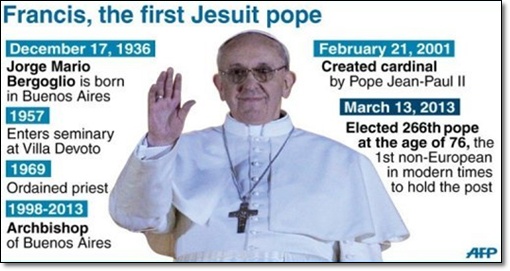
Our region was socialist in late sixties and seventies
Our then MLA, late Bhaskara Shetty of Kapu and our state governments led by late Devraj Urs subscribed to our social problems and political aspirations: poverty and social justice. In college, I was poor but socially and politically aware of our reality. I was a devout and practicing Roman Catholic as well as ranking official in Christian Youth Movement. But temperamentally, I was a socialist. Therefore, it is natural that I found it hard to reconcile treatment of poor at the hands of our Catholic Church Establishment.
The clerical practices were Pharisaical. They were hypocritical, as Pope Francis said
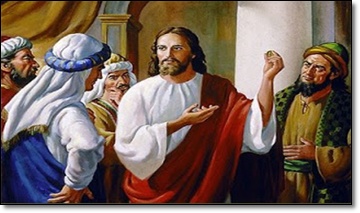 I moved out of the shadows of Jesuits to a communally isolationist Udupi-Manipal. But I continued my association with a few diocesan clergy in whom I saw elements of liberation theology. Also with priests linked to healing ministry including exorcism. Faith healing and exorcism were controversial in our Catholic Church Establishment then and are even today. But that is a story for another day.
I moved out of the shadows of Jesuits to a communally isolationist Udupi-Manipal. But I continued my association with a few diocesan clergy in whom I saw elements of liberation theology. Also with priests linked to healing ministry including exorcism. Faith healing and exorcism were controversial in our Catholic Church Establishment then and are even today. But that is a story for another day.
I moved to Bombay in mid-1973 to a predominant Catholic neighborhood
Life in Bombay was very hard for poor immigrants from rural areas. I tasted slum life with its filth and human excreta. The endless fights for basic amenities like access to community toilets, public water taps, and serpentine queues for buying rations of essentials like rice, wheat, sugar and kerosene ensured that life was a constant struggle to survive, without human dignity.
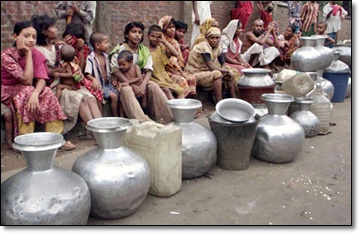 Large numbers of devout and faithful Catholics of Goan, Mangalorean, East Indian and of South Indian Dravidian roots lived in the slums. I lived and watched them go about their lives for four years. Someone ran away with a neighbor’s wife. Someone got drunk every evening, abused and thrashed wife and children. Three past-teen daughters of another household went to work after dark and wore lipstick suggestive of their trade. They and we did not miss Sunday Mass. We heard the priests exhort to give more in alms and charity. And yet, I did not see a priest making home visits, ever for four years! There was no slum priest and no shoe-leather priest in Mumbai suburbs. Liberation theology was unheard of.
Large numbers of devout and faithful Catholics of Goan, Mangalorean, East Indian and of South Indian Dravidian roots lived in the slums. I lived and watched them go about their lives for four years. Someone ran away with a neighbor’s wife. Someone got drunk every evening, abused and thrashed wife and children. Three past-teen daughters of another household went to work after dark and wore lipstick suggestive of their trade. They and we did not miss Sunday Mass. We heard the priests exhort to give more in alms and charity. And yet, I did not see a priest making home visits, ever for four years! There was no slum priest and no shoe-leather priest in Mumbai suburbs. Liberation theology was unheard of.
Mumbai too was under the socialist and Marxist influence at the time
The tallest leftist leader of was none other than George Fernandes, the fiery orator and ex-seminarian of Mangalorean Catholic roots. I suspect he had renounced Catholicism and God when he cast himself as the god of the underclass, labor, homeless and poor. One of his disciples, a taxi driver living in a rented single room dilapidated tenement and had barely enough to eat, introduced me to a growing flock of disgruntled Catholics. They had no name; no, not Jehovah Witness; no, not New Life. They met in private homes, prayed, and helped each other. They took out from their homes every sign of being a Catholic. A bare wooden cross, without the plaster of Paris body of the dying Jesus, announced their creed. For this act, they were not ex-communicated by church; but, relatives boycotted them almost without fail.
In their company, I too learnt to meditate and pray differently than at my parish
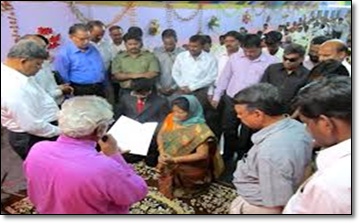 I was 21 plus and read the Holy Bible for the first time. I did not miss my Sunday mass with regulars and did not forget to drop that coin in alms. I had the sacraments, yet, I felt Jesus was mocking at me from within after that. His gone-astray people did not suffer from such guilt at all. Were they liberated in their conviction that Jesus was world’s forgotten Socialist/Marxist/Communist? Were they comforting themselves that eternal life awaited them if they remained poor and deprived of the earthly pleasures? I could tell that they did not like being poor and miserable but believed that was THE way of salvation! I was not so sure ‘that’ was what Jesus meant us to be. I was sure ‘that’ was not what Jesus was, not just another Marx. Jesus is much more than Marx, Che, Mao, Lenin and Gandhi put together.
I was 21 plus and read the Holy Bible for the first time. I did not miss my Sunday mass with regulars and did not forget to drop that coin in alms. I had the sacraments, yet, I felt Jesus was mocking at me from within after that. His gone-astray people did not suffer from such guilt at all. Were they liberated in their conviction that Jesus was world’s forgotten Socialist/Marxist/Communist? Were they comforting themselves that eternal life awaited them if they remained poor and deprived of the earthly pleasures? I could tell that they did not like being poor and miserable but believed that was THE way of salvation! I was not so sure ‘that’ was what Jesus meant us to be. I was sure ‘that’ was not what Jesus was, not just another Marx. Jesus is much more than Marx, Che, Mao, Lenin and Gandhi put together.
Yet, I was angry when constitutionally elected Marxist Chilean President Salvadore Allende Gossens was assassinated on 11 September 1973 by Pinochet’s military forces. I took time off to write for “Poinnari” (Konkanni Weekly) a scathing criticism of American Imperial Power and the covert CIA activities in third world against leaders of the poor.
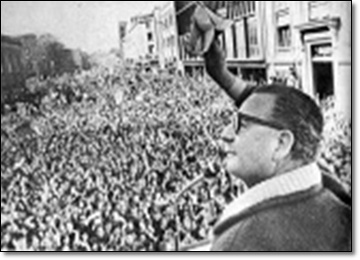 My liberation theology comrades were pleased with my analysis. In reward, I got a free membership to a book lending library. It stocked rare books including on Latin American Revolutionary Heroes like Che Guevara. Che is Argentine, Marxist, and a Guru for Castro and other leftist revolutionaries in the third world. Only he was not as successful as Lenin and Mao.
My liberation theology comrades were pleased with my analysis. In reward, I got a free membership to a book lending library. It stocked rare books including on Latin American Revolutionary Heroes like Che Guevara. Che is Argentine, Marxist, and a Guru for Castro and other leftist revolutionaries in the third world. Only he was not as successful as Lenin and Mao.
I immigrated from poverty into promised lands
I was 25 when in US they mistook me for Spanish, until I opened my mouth (to speak not to eat). Among my earliest friends were Latinos. I will only mention a Bangladeshi (naturalized Canadian) who imported an Argentine bar & club dancer to be his second wife. Bar & Club dancers are, well, sinners in puritanical Catholic world. Probably Pope Francis had in mind Catholics such as my friend’s wife, when he reminded the faithful that Jesus ate and drank with the sinners and prostitutes. Jesus did not preach, live and die only for the rich, privileged, powerful and of noble ancestry. “Even if we live a pious life, but do not confess Jesus Christ and live his message, nothing is going to happen” was his first sermon to his Cardinals. Precisely; go out to the poor, sinning, and suffering people of this world as Jesus showed by example.
That is what living in Argentina is about. You feel the need for a living Christ
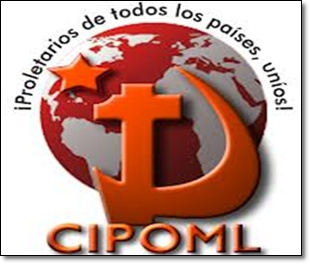 I would spare details of Argentinian history. It is full of civil wars, dirty wars, dictators, crony capitalism, sleazy communists, and pretenders. Readers can easily find and learn. I will limit to my personal experiences in Argentina. I still have half a dozen or so friends living inside the country, in its Capital city Buenos Aires, another big city called Rosario and smaller ones like San Nicholas and Campana. I would love to go there again sometime sooner. Especially, since Pope Francis is Argentine, the mood will have changed from depression to that of hope.
I would spare details of Argentinian history. It is full of civil wars, dirty wars, dictators, crony capitalism, sleazy communists, and pretenders. Readers can easily find and learn. I will limit to my personal experiences in Argentina. I still have half a dozen or so friends living inside the country, in its Capital city Buenos Aires, another big city called Rosario and smaller ones like San Nicholas and Campana. I would love to go there again sometime sooner. Especially, since Pope Francis is Argentine, the mood will have changed from depression to that of hope.
My first memories of arriving in Buenos Aires international airport is of the warm and intense morning sun of a bright September. The immigration officer was swift in stamping my passport. He did notice that I am Catholic. “Felipe, Buenos Dias” and I was in Argentina.
I headed to the bank counter. Buenos Dias, Senor. 100 dollars Americanos? One million mil Australes. I looked at ten numbers of Argentinian currency notes of 100000 denominations, shining and hot out of the printing press! I was a millionaire! Felt really good, to be so for the first time in life.
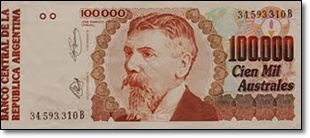 Stepping out into the street, I notice men and women in full suits and knee-deep jackets hurrying up and down in their leather shoes. Twelve degree centigrade is not that cold to cover one’s body so fully and not show any skin! I had arrived from Rio de Janeiro, where it seemed no one wanted to wear anything. Instantly I understood what my Brazilian friends were saying about their rival soccer nation: Dull and unexciting unlike our football. They say far worse things mostly un-printable about Argentines. Like, we say about Pakistanis. But that is another story.
Stepping out into the street, I notice men and women in full suits and knee-deep jackets hurrying up and down in their leather shoes. Twelve degree centigrade is not that cold to cover one’s body so fully and not show any skin! I had arrived from Rio de Janeiro, where it seemed no one wanted to wear anything. Instantly I understood what my Brazilian friends were saying about their rival soccer nation: Dull and unexciting unlike our football. They say far worse things mostly un-printable about Argentines. Like, we say about Pakistanis. But that is another story.
At taxi stand, I haggled like a true Indian
4200 mil austral per kilometer; if I pay in greenbacks, it is only 28 Americano cents. Ok, my arithmetic skills helped: that is a 33% discount if he received illegal foreign currency. Such things worked in Mumbai, Cairo, Caracas, Rio and nearly any third world metros I went those days. Not unique about Argentina.
I checked into Park Château Kempinski Hotel in the downtown. The 30 plus kilometer trip ten dollars in fare and tip. But, it also provided my first impressions of lives of ordinary folks in at once one of the richest and poorest cities of Latin America. The streets were clogged with domestic assembled large American Limousines of the rich and powerful as well as public buses, taxis for the middle class, and the street trams for the poor. The streets were full of people, walking, hurrying and going about their lives; including beggars at street corners.
Once I got hold a city map and learnt how to read it
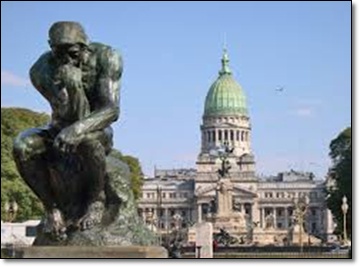 I ventured out on foot in a general direction of my destination. I would not take you on a city tour, but suffice it to say that my Marxist and liberation theology background described earlier were points of interest to me. I was then an admirer of Peron and his charming wives (alas, all of them were dead!). I also did not like Margaret Thatcher then. And therefore, what I chose to see then is not exactly what I would choose to see in subsequent trips or my future trip. During subsequent trips, I had changed my views on communism, Reaganomics and Thatcherism. That is an entirely a big and different story.
I ventured out on foot in a general direction of my destination. I would not take you on a city tour, but suffice it to say that my Marxist and liberation theology background described earlier were points of interest to me. I was then an admirer of Peron and his charming wives (alas, all of them were dead!). I also did not like Margaret Thatcher then. And therefore, what I chose to see then is not exactly what I would choose to see in subsequent trips or my future trip. During subsequent trips, I had changed my views on communism, Reaganomics and Thatcherism. That is an entirely a big and different story.
Because I am putting my memories in the aftermath of the Argentine Pope, I shall mention about religion and its practice.
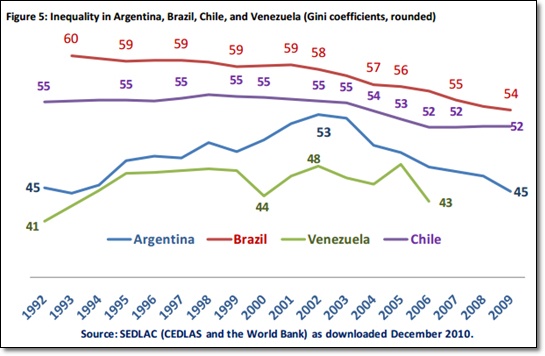
Buenos Aires was and is Catholic in character. In fact, Argentina is and will be.
The Jewish and Syrian Quarters and their populations are interesting places to shop for leather jackets, shoes and warm clothes as well as savor expensive steak and wines. At dimly lit restaurant tables, waited upon by pretty but cold damsels and near snooty gentlemanly ambience. Keep your voices down, proper and very British in this city full of Italian, German and Spanish genes. That is unfair, too. But then, life in Argentina is unfair, including its bread, which I cannot bite into without help of a hammer.
I have digressed. Let us return to Church and Religion
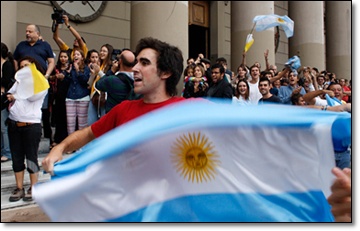 Buenos Aires Metropolitan Cathedral is where I went to celebrate Mass. I walked from my hotel to Mayo de Plaza, spent some time refreshing my history lessons and remembering revolutionary comrades and then admiring the Cathedral. It is not a conventional Cathedral like those in Europe and Italy. Pope Francis was auxiliary bishop of the city and was on hand to celebrate. Let me just say that it was a drab traditional Latin rite mass in Spanish, with hardly anything in the homily that I remember. I spent most of my time looking at the ceiling and the general architecture. Mea culpa, mea culpa, mea maxima culpa, Papa Francesco. God willing, I will return to do penance.
Buenos Aires Metropolitan Cathedral is where I went to celebrate Mass. I walked from my hotel to Mayo de Plaza, spent some time refreshing my history lessons and remembering revolutionary comrades and then admiring the Cathedral. It is not a conventional Cathedral like those in Europe and Italy. Pope Francis was auxiliary bishop of the city and was on hand to celebrate. Let me just say that it was a drab traditional Latin rite mass in Spanish, with hardly anything in the homily that I remember. I spent most of my time looking at the ceiling and the general architecture. Mea culpa, mea culpa, mea maxima culpa, Papa Francesco. God willing, I will return to do penance.
Later in the afternoon, with a native friend, I experimented with other forms of adoration and prayer. Somber piano and violins were replaced with guitars and brass musical instruments, hymns sounded like metal and young men and women jumped up and down in hysterical frenzy inside what looked like deserted warehouses and not really church buildings. They too were Catholics, schismatic may be, or like our charismatics. But there was angry energy like a band of dogs howling at lonely moon in the sky.
They came from slums
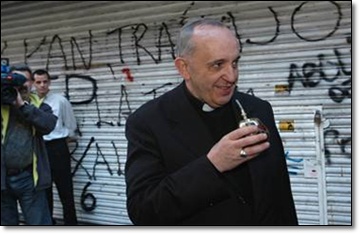 They wrote graffiti all over the neighborhood. Was I safe? The thoughts never crossed my mind. In Rio, my Brazilian friends always talked about the need to be cautious, to look over the shoulder, to keep away from favelas, trouble spots and even hired protection to look after me. In the same dateline, under recessionary, inflationary and near hopeless economic situation in Buenos Aires, I was wandering in poverty stricken hell holes without much of a bother. Unlike in Rio, where Christ the Redeemer surveyed the City with it criminals included from his hill-top abode, here no visible signs of Him looking after His sheep including the lost kind. Buenos Aires was and still is a relatively safer city in the whole of Latin America. Poverty is not necessary to be equivalent to criminality.
They wrote graffiti all over the neighborhood. Was I safe? The thoughts never crossed my mind. In Rio, my Brazilian friends always talked about the need to be cautious, to look over the shoulder, to keep away from favelas, trouble spots and even hired protection to look after me. In the same dateline, under recessionary, inflationary and near hopeless economic situation in Buenos Aires, I was wandering in poverty stricken hell holes without much of a bother. Unlike in Rio, where Christ the Redeemer surveyed the City with it criminals included from his hill-top abode, here no visible signs of Him looking after His sheep including the lost kind. Buenos Aires was and still is a relatively safer city in the whole of Latin America. Poverty is not necessary to be equivalent to criminality.
Is that because the Argentines by and large are a simpler, humbler, gentler and non-garrulous by nature? Exactly, the image Cardinal Jorge Bergoglio presented at his first introduction to world as Pope.
Of other cities, life on agricultural farms, changing social mores over two decades, and the desire of my middle class friends of European roots to flee the country and emigrate for a better future of their next generation away from neo-peronist socialist Kirchner-Fernandez administration are too many subjects to deal now.
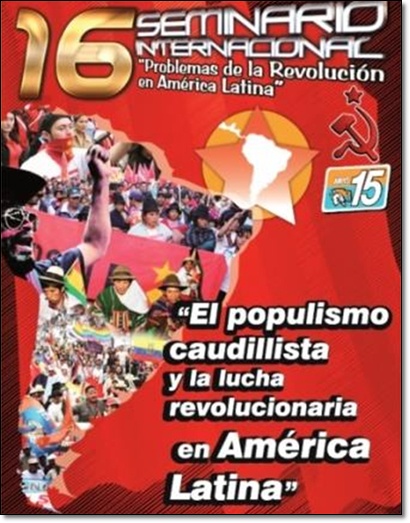
The legacy of Pope Francis as Jesuit provincial for Buenos Aires and historic controversies related to Church’s behavior during civil wars, dirty wars, dictatorships and post-democracy leftist rule are too complex for discussion now.
His damaged relationship with current President over her policies related to family life is due to his reminding her of traditional church doctrine on divorce, marriage, family planning etc.
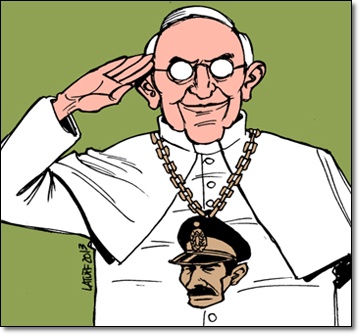
These require a critical look after the Pope had a chance to peak on them from St. Peter’s.
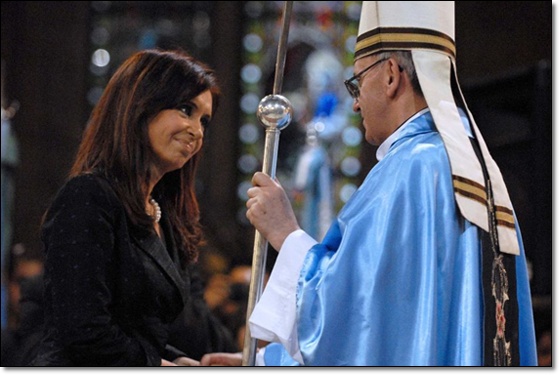
I will, at another time, with less digression and direct analysis.
|
Philip Mudartha
|




 Write Comment
Write Comment E-Mail To a Friend
E-Mail To a Friend Facebook
Facebook Twitter
Twitter  Print
Print 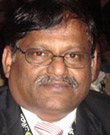 [..FIRST rank holder of St. Lawrence High School. He not only inscribed his name on the hearts and minds of every Bellean and the neighboring villages, but through out the State of Karnataka as TOPPER of SSLC Board Examinations in the year 1969..]
[..FIRST rank holder of St. Lawrence High School. He not only inscribed his name on the hearts and minds of every Bellean and the neighboring villages, but through out the State of Karnataka as TOPPER of SSLC Board Examinations in the year 1969..]















Very informative and fascinating.
Beautifully crafted article Mr.Philip, my mother (Tejju teacher), she too is from Pamboor admires you a lot for the guts and honesty. You have touched many subjects in the past and your honesty in writing reflects the life you live. I thank you for the hard work you put in to publish these fantastic articles for all of us to read and gain knowledge. many R.Catholics gone astray and joined many other groups and few started their own, I personally hold our religious leaders and church responsible as the main aim of sharing caring has been long forgotten, you have touched the most sensitive issues of the church, but it is the bitter truth we all know. hats off to your writing, which enticed me to read till the end and again to understand it completed. Yes Argentinians are religious too, hope the poor in the region will be uplifted during this Pope s presence. Thank you Philip sir for investing time for us by way your writing.